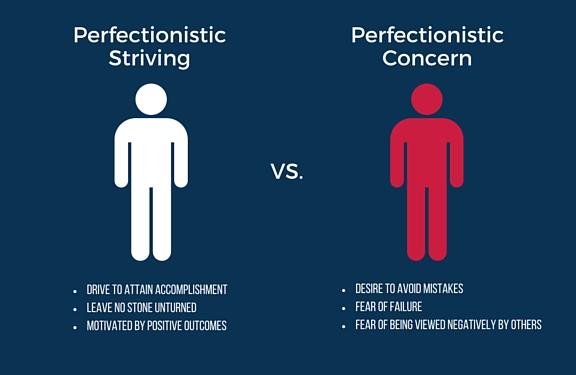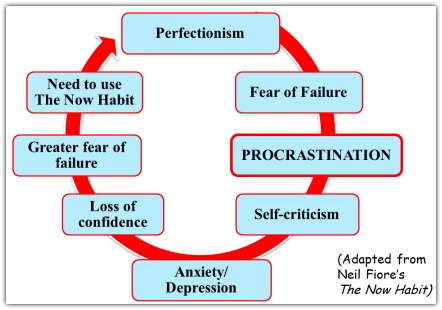I guess, it is a time for me to share with you something about me.
The topic of perfectionism is well known to me. Because, for many years (totally subconsciously) I was driven to reach perfection, and as a result anything less to my consideration I would not accept. Consequently, in many ways it was exhausting, trying to be perfect all the time…the perfect mother, perfect wife, perfect sister, and perfect house-keeper, and so on. For Instance, if I would feel that I wasn’t perfect I would give myself a hard time. Even now when I am looking back, it feels like a vicious trap. Certainly, I would never want to come back to it. Because, the constant pressure and tension I put myself under, wasn’t worth the illusion, of being perfect.
However, throughout my training and personal therapy, I realized, that my need for being perfect came out of the deep feeling of low self-worth, and the belief of not being good enough. Even though this tough journey is behind me now, I still took something positive out of it. As a result, I learned how to use this drive of trying to be perfect, to help me achieve my life goals.
WHAT IS PERFECTIONISM?
It is recognized that perfectionism involves three things: Firstly, the relentless striving for extremely high standards, for yourself and/or others that are personally demanding. Secondly, judging your self-worth based largely on your ability to strive for and achieve such unrelenting standards. Thirdly, experiencing negative consequences of setting such demanding standards, yet continuing to go for them despite the huge cost to you.
On the other hand, however perfectionism can be seen as a positive trait that increases your chances of success, but it can also lead to self-defeating thoughts or behaviors that make it harder to achieve goals. It may also cause stress, anxiety, depression, and other mental health issues. People who attempt for perfection out of feelings of inadequacy or failure may find it helpful to speak with a therapist because this can often help people manage excessive self-criticism, which is very closely related to perfectionism.
DEFINITION OF PERFECTIONISM?
In addition, very often perfectionism is distinct as the need to be or appear to be perfect, or even to believe that it’s possible to achieve perfection. People usually view it, as a positive trait rather than a flaw. However, it is important to note that perfectionism is not the same thing as determined to be the best. In fact, perfection is not about healthy achievement and growth. It is rather used as a form of a shield to protect against the pain of blame, judgment, or shame.
EXAMPLES OF PERFECTIONISTIC BEHAVIOR
To point out, working hard to reach your goals does not always indicate perfectionistic behavior. Often, people who are perfectionists, usually believe that nothing they do is valuable unless it is perfect. Rather than being proud of their progress, learning, or hard work, they might frequently compare their work to the work of others or fixate on achieving a flawless outcome. Although, people with perfectionistic traits, when they get their desired results, they may still be unsatisfied.
Some examples of perfectionism:
- Spending 30 minutes writing and rewriting a two-sentence email.
- Believing that missing two points on a test is a sign of failure.
- Struggle to be happy for others who are successful.
- Holding oneself to the standards of others’ accomplishments or comparing oneself unfavorably and unrealistically to others.
- Concentrating on the end product rather than the process of learning.
- Avoiding playing a game or trying a new activity with friends for fear of being shown up as less than perfect.

TYPES OF PERFECTIONISM
Although, there are a few different types of perfectionism. While these types share similar behaviors, their motives and outcomes often differ.
Personal standards perfectionism
This type of perfectionism is regarded as being healthy, because it doesn’t lead to excessive stress and burnout. For instance, someone who practices this type of perfectionism may adhere to a set of standards that motivate them. However, others might still consider these principles to be high, but they are motivating to the person who sets them. People with personal standards perfectionism may be less likely to use harmful conduct to cope with stress brought on by perfectionism. A person has this type of perfectionism only if their goals make them feel energized and not overwhelmed or paralyzed.
Self-critical perfectionism
Perfectionists of this type, are more likely to become intimidated by the goals that they set for themselves rather than feeling motivated. Although those people may more often feel hopeless or that their goals will never become a reality. Research suggests that self-critical perfectionism is more likely to lead to negative emotions, such as distress, avoidance, anxiety, and self-condemnation.
Socially prescribed perfectionism
This type of perfectionism defines the desire for excellence often placed on people with jobs that require extreme precision, such as lawyers, medical professionals, and architects. Individuals in these professions experienced more hopeless thoughts and stress.
Socially prescribed perfectionism also applies to people who are held to high cultural, or societal standards and who struggle to meet these unrealistic goals. For example, students may be held to high academic standards by their parents.
DOMAINS OF PERFECTIONISM
Perfectionism can affect many areas of a person’s life, and these areas are often referred to as domains. Sometimes, perfectionism impacts only one domain, while other times, it impacts multiple domains. Here are some areas of life, which perfectionism can affect.
- In the workplace or at school
- Intimate relationships or friendships
- Physical activity
- Environment or surroundings
- Hygiene and health
- How one speaks or writes
- Physical appearance
WHAT CAUSES PERFECTIONISM?
Many factors can contribute to whether perfectionism develops. Some of us can develop perfectionism at a very early age, and like me, not being fully aware of it. Here are a few examples:
- Frequent fear of disapproval from others or feelings of insecurity and inadequacy.
- Mental health issues like anxiety or obsessive-compulsive disorder (OCD). While there is an association between OCD and perfectionism, not all people with perfectionism have OCD, and not all people with OCD are perfectionists.
- Having a parent who shows perfectionistic behavior or expresses disapproval when their children’s efforts do not result in perfection. Some parents may encourage their children to succeed in every area or push perfection on them.
- An insecure early attachment. People who had a distressed attachment with parents when they were young may experience difficulty self-soothing as adults. They may have trouble accepting a good outcome as good if it’s not perfect.

CONCLUSION
To conclude, people with a history of high achievement sometimes feel overwhelming pressure to live up to their previous achievements. In reality, this often leads them to involve in perfectionistic behavior. Children who are frequently praised for their accomplishments may feel pressure to keep achieving as they age, which can also cause perfectionistic tendencies. Moreover, if you feel you may have traits of perfectionism that cause you daily distress, please note that perfectionistic behavior and habits can be changed. Furthermore, with the help of a trusted and compassionate therapist, it is possible to learn healthier attitudes about your goals and standards. Overall, I am a good example of that perfectionism can be overcome and that new, healthier ways can be learned, for you to be happier with yourself, in your life.
References:
Hasse, A. M., Prapavessis, H., & Owens, R. G. (2013, June 24). Domain-specificity in perfectionism: Variations across domains of life. Personality and Individual Differences, 55(2013), 711-715. Retrieved from http://citeseerx.ist.psu.edu/viewdoc/download?doi=10.1.1.719.5924&rep=rep1&type=pdf
Rettner, R. (2010, July 11). The dark side of perfectionism revealed. Retrieved from http://www.livescience.com/6724-dark-side-perfectionism-revealed.html
Szymanski, J. (2011, October 3). Perfectionism: Healthy or hurtful? Retrieved from http://blogs.hbr.org/cs/2011/10/is_perfectionism_helping_or_hu.html

